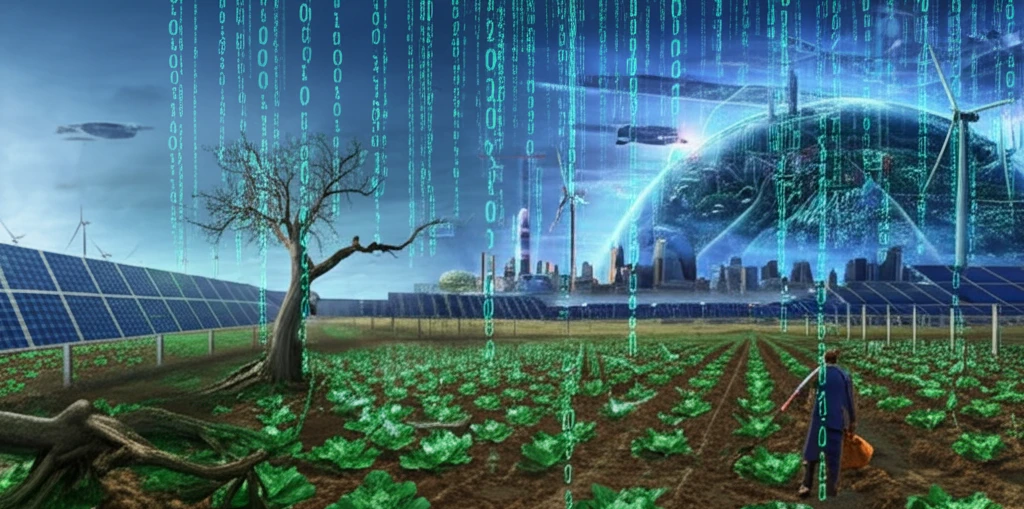
The End of Farming? How Tech and Consumerism Are Reshaping Agriculture
"From bioengineered seeds to changing consumer tastes, agriculture is undergoing a radical transformation. Are traditional farms becoming obsolete?"
Agriculture, at its core, is a process of converting energy and biological information into food for human consumption. However, the way we achieve this is changing rapidly. Sophisticated biotechnology in agricultural inputs is redefining agriculture as primarily a flow of information, not just a physical process.
The traditional model of farming, characterized by independent farmers making decisions based on their knowledge and experience, is being challenged. The rise of bioengineered inputs and the increasing influence of consumer preferences are shifting the balance of power in the agricultural supply chain.
This article examines how agriculture is evolving into an 'end-to-end' system, where intelligence and decision-making are concentrated at the beginning and end of the supply chain, potentially leaving farmers as mere conduits in the production process.
How Have Bioengineered Inputs Transformed the Role of Farmers?

The rise of bioengineered seeds and other inputs has significantly reduced the role of farmers in shaping the genetic makeup of crops. In the past, farmers selected and bred plants based on desirable traits, adapting them to local conditions and evolving their characteristics over time. This evolutionary contribution of farmers is becoming obsolete.
- Herbicide Resistance: Crops are engineered to withstand specific herbicides, allowing farmers to control weeds more effectively.
- Pest Resistance: Some crops produce their own insecticides, reducing the need for chemical sprays.
- Increased Yield: Genetic modifications can enhance crop yields, leading to greater productivity.
Navigating the Changing Landscape of Agriculture
The transformation of agriculture presents both challenges and opportunities. While traditional farming practices are under pressure, there is also growing interest in sustainable and alternative agricultural models. Consumers are increasingly demanding transparency and traceability in the food supply chain. New technologies, such as vertical farming and precision agriculture, offer the potential to increase efficiency and reduce environmental impact.
